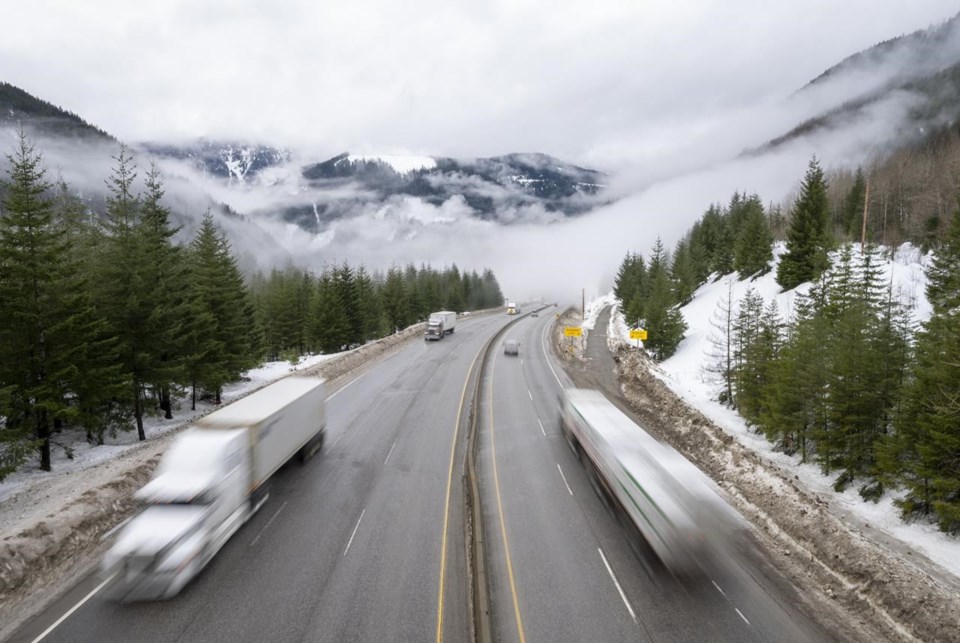REVELSTOKE, B.C. — Avalanche Canada has issued a warning for wide swaths of the British Columbia Interior into parts of Alberta, with "very dangerous" conditions forecast to persist until Monday.
The warning applies for mountainous regions of southwestern and northwestern B.C., as well as the eastern part of the province including the Rockies into Alberta's Kananaskis Country.
Avalanche Canada says recent storms have deposited a large amount of snow on "weak layers" established early this month that are prone to human-triggered avalanches.
High-elevation stretches of two highways in the B.C. Interior have meanwhile reopened after they were shut down by heavy snowfall and winter storm conditions this week.
Highway 1 from Revelstoke to Golden had been closed due to avalanche risk, while the Ministry of Transportation's DriveBC site said the Coquihalla Highway between Merritt and Hope had been shut as motorists faced wintry driving conditions.
Environment Canada had issued winter storm or snowfall warnings for both routes in addition to sections of Highway 3 and Highway 16, although most have since been removed.
The weather agency says the Pacific frontal system behind the winter storm has dropped 57 centimetres of snow in Whistler, up to 60 centimetres on the Sea to Sky Highway and 32 centimetres at Coquihalla Summit.
Avalanche Canada forecaster Tyson Rettie says in a statement that the agency has been tracking recent weak layers of snow, and the "instability" makes triggering an avalanche an active risk.
"We know backcountry users are eager to enjoy the snow,” Rettie says. “But it’s vital to not underestimate the instability of these weak layers."
This report by The Canadian Press was first published Feb. 29, 2024.
The Canadian Press



